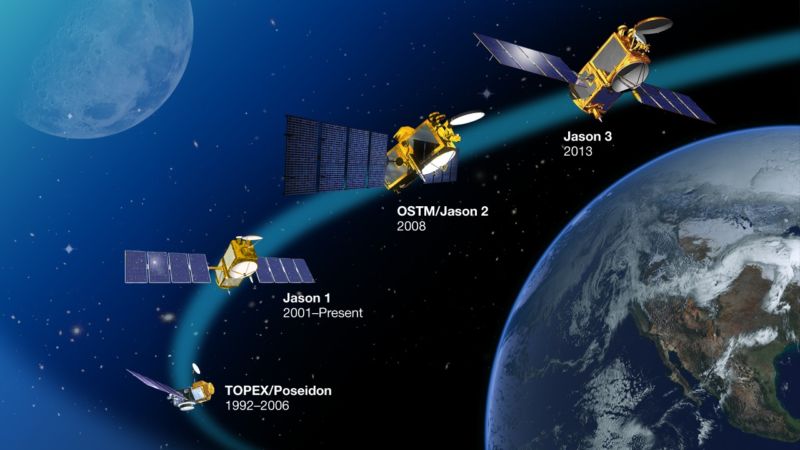Yes, sea level rise really is accelerating
Ars Technica » Scientific Method 2018-02-13

Enlarge / A family of sea-level-measuring satellites. (credit: NASA)
Some people have eyeballed satellite measurements of sea level rise and claimed that there is no sign of acceleration—just a linear increase. Then, ignoring the physics of melting glacial ice and the expansion of warming water, they declare that future sea level rise won’t be a big deal. Many studies have demonstrated accelerating rates of sea level rise over the past millennia, as well as the tide gauge record spanning the 20th century. But the short satellite record—which only started in 1993—is a slightly different question.
While the global satellite record is in many ways cleaner than coastal measurements that can be affected by processes that raise or lower the ground that the tide gauge sits on, there are still complications to account for. Since the record is still short, a small wiggle of natural variability can have a significant impact on seeing the subtle acceleration. The back and forth between El Niño and La Niña, for example, causes sea level to vary from year to year by changing the amount of precipitation that temporarily shifts water onto continents.
Accounting for all of this is complicated, but that hasn't stopped researchers from trying.